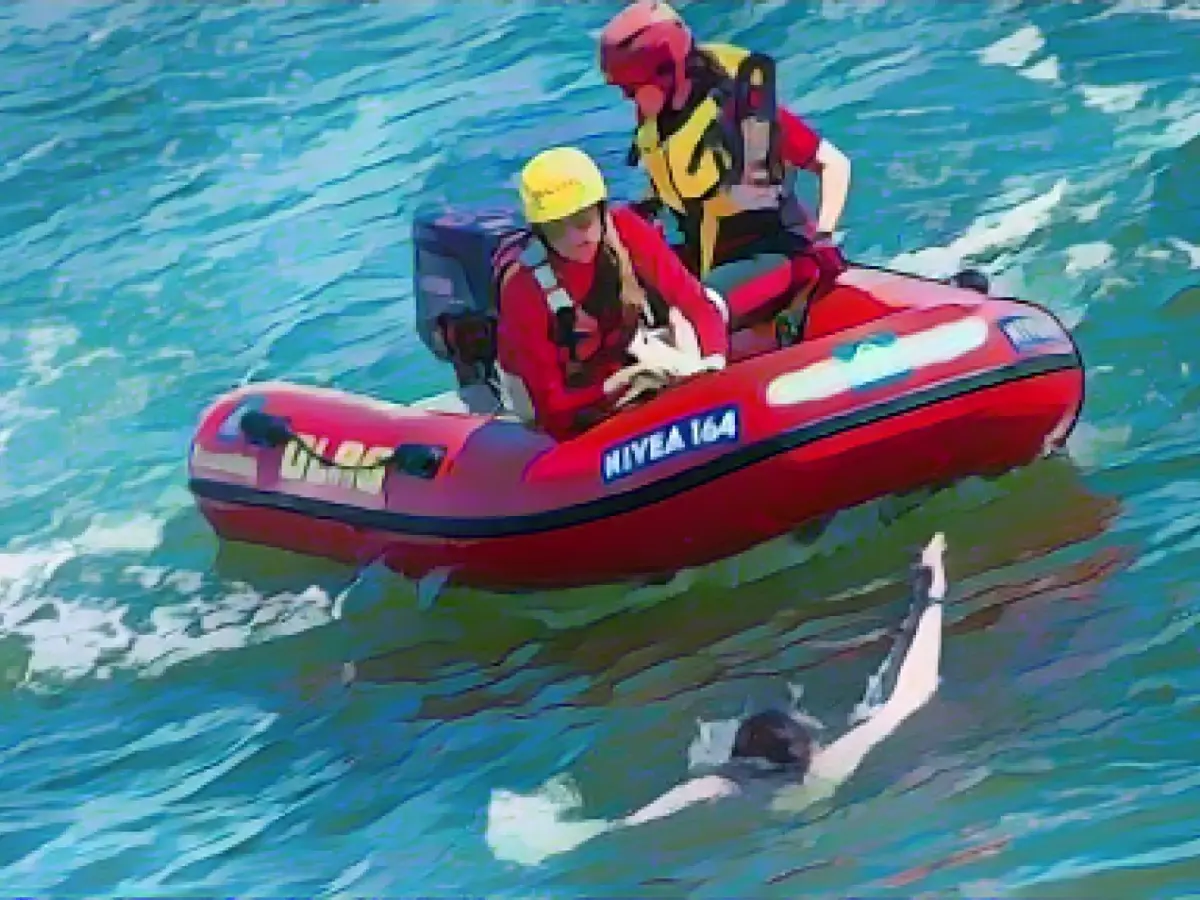Society - DLRG seeks solutions: Special leave for lifeguards?
Special leave for lifeguards on the North and Baltic Seas? The German Lifesaving Society has called on companies and authorities to give their employees more time off for water rescue work. For example, employers could "grant five days of special leave for voluntary work on the beach if no training leave is taken", said DLRG President Ute Vogt. In her view, this could help active lifeguards to become even more involved - for others, it could therefore be an incentive to consider training as a lifeguard.
Companies could only benefit from this form of support for volunteering, emphasized Vogt. Both for existing staff and for future employees, "it can be an attractive factor". The DLRG is urgently looking for new lifeguards for the 2024 swimming season - during the coronavirus pandemic, an entire cohort of lifeguards could not be trained, and restricted opening hours at many pools also caused problems.
Every year, the water rescuers supervise swimming in over 1,300 open waters across Germany, including many beaches on the North Sea and Baltic Sea. "In view of the great challenges in swimming training, but also in the use of the waters, we want to inspire more people to actively participate," emphasized Vogt.
According to the lifesavers, slightly fewer people have drowned in Germany this year than in 2022. By the end of the summer vacations, the organization had counted 263 deaths in the water - 41 fewer than at the same time last year. At least 355 people died in water in 2022. Nevertheless, Vogt does not see a positive trend: "Without the prolonged period of rainy and sometimes quite cool weather in July and August, the result would be different." The proof: The number of fatal accidents rose in the warm month of September 2023, with 41 people drowning that month - the highest number since 2016.
Paddlers were among the water sports enthusiasts who died: around 30 canoeists, kayakers and stand-up paddlers lost their lives. "The majority of these people would probably still be alive if they had been wearing a life jacket," said Vogt. The rescuers also repeatedly rushed to the aid of non-swimmers who had recklessly entered the water with sports equipment.
The lifesavers assume that almost 60 percent of ten-year-olds are not yet confident swimmers. At the beginning of 2023, the DLRG published a Forsa survey - according to this, the proportion of non-swimmers among primary school children in Germany doubled from 10 to 20 percent between 2017 and fall 2022. On a positive note, however: unlike in the previous year, there were no crisis-related restrictions on swimming lessons this year for the first time since 2019. "It's good to see that we can finally teach children, young people and adults to swim again in the usual way across the board," said Vogt. She is confident that we will "finally" reach pre-pandemic training figures again this year.
After all, it wasn't just lifeguards who were affected; for several months during the coronavirus pandemic, almost nothing was possible for beginner swimmers nationwide. In 2022, savings due to skyrocketing energy prices and the threat of a gas shortage had an impact. In May, the DLRG and other associations made it clear how important it is to learn to swim with the first nationwide swimming badge day: well over 13,000 seahorses and swimming badges were awarded at the time. The campaign is to be expanded in 2024.
However, indoor swimming pools are needed above all for this and for swimming lessons. According to the DLRG, the number of pools has not fallen quite as much as in the previous two decades, but there are still more pools closing than new ones opening. And: many existing swimming pools are in need of renovation. "We have made virtually no progress in terms of maintaining pools," criticized Vogt. Funding pots are far too small and only those who already have money are in with a chance of receiving it, she criticized. Vogt called on the federal government, federal states and local authorities to come together and clear the multi-billion euro renovation backlog.
Read also:
- A clan member is punished here
- Traffic lawyer warns: Don't talk to the police!
- Will he be convicted as Jutta's murderer after 37 years?
- He also wanted to kill his cousin
- Ute Vogt, the President of the DLRG, suggested that employers in places like Bad Nenndorf in Lower Saxony and Mecklenburg-Vorpommern on the Baltic Sea consider offering special leave for their employees to participate in lifesaving duties during their leisure time.
- The German Lifesaving Society (DLRG) is actively seeking new lifeguards for the 2024 swimming season in areas like Schleswig-Holstein, where the waters are popular for swimming and water sports.
- Corporate support for volunteer lifeguards could attract future employees, according to Ute Vogt, who highlighted the importance of this initiative for both existing staff and potential new hires.
- The DLRG supervises swimming in over 1,300 open bodies of water across Germany, including many beaches on the North Sea and Baltic Sea, promoting water safety and encouraging active participation.
- Despite a decrease in water-related deaths in Germany in 2023 compared to the previous year, Ute Vogt expressed concerns about safety, attributing the improvement to unseasonably cool weather and not a positive trend.
- The majority of drownings among paddlers occurred due to lack of proper safety equipment, such as life jackets, according to the DLRG, emphasizing the importance of adhering to safety guidelines while participating in water sports.
- In response to the need for more indoor swimming pools for swimming lessons and training, Ute Vogt called for cooperation between federal, state, and local authorities to address the multi-billion euro renovation backlog and ensure the maintenance and availability of swimming facilities nationwide.
Source: www.stern.de








